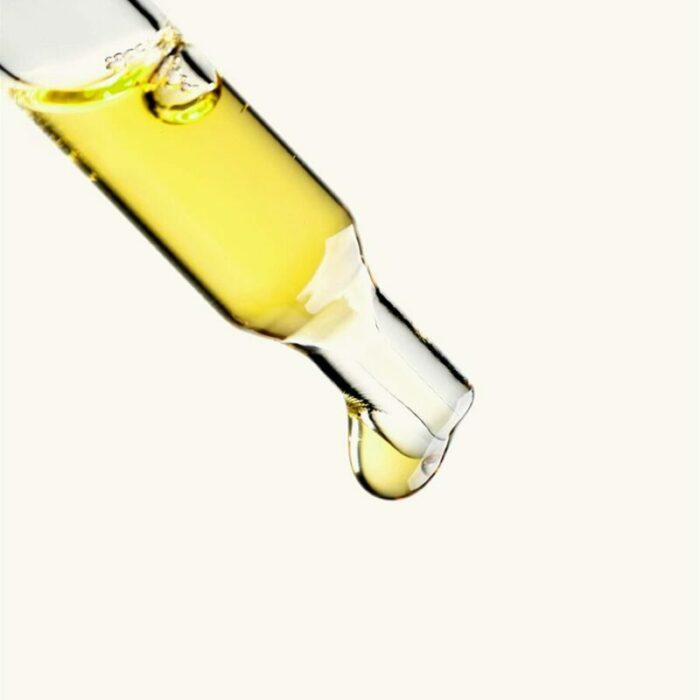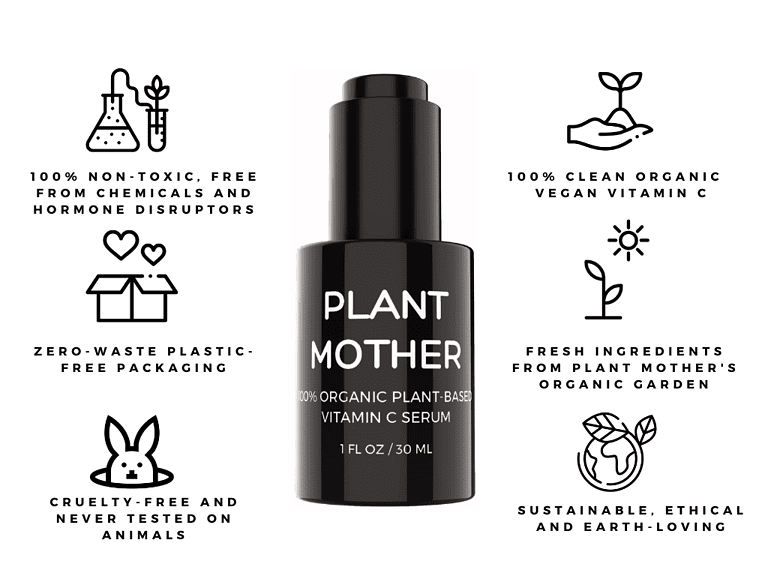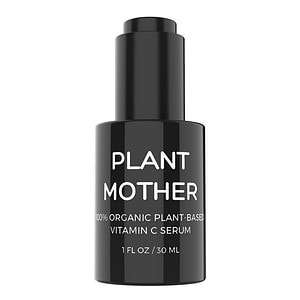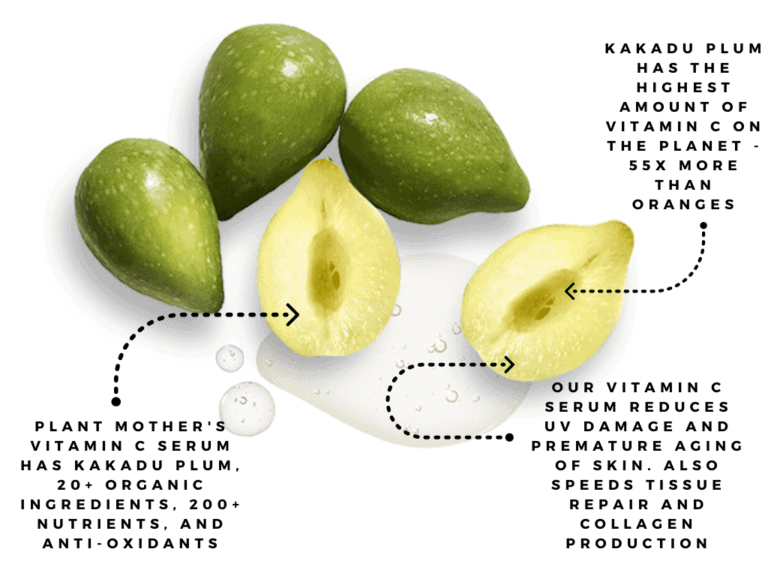Vitamin C Face Cream Or Serum? Which One Is Better For You And Why

Vitamin C Face Cream or Serum? If there’s an ingredient that is widely loved and used by the skin care world, certainly it’s Vitamin C. Despite being one of the most popular ingredients in the world, there are still many unknowns and unanswered questions about this ingredient.
That’s why in this article, we try to explain what types of Vitamin C face creams are out there, if cream is better than the serum, what other ingredients to look for in a good Vitamin C product, and many more. Read below for the complete guide.
Vitamin C Face Cream Table of Content
- What exactly is Vitamin C?
- Vitamin C Face Cream
- Not All Vitamin C Face Creams Are Same
- Should You Choose Vitamin C Face Cream or Serum?
- Ingredients to Look for In a Topical Vitamin C
- The Benefits of Vitamin C for Your Skin
- Additional Benefits
- Benefits For The Planet
- Vitamin C Face Cream vs Serum – Final Thoughts
What exactly is Vitamin C?
Vitamin C is an essential vitamin for the body. It’s one of the most effective anti-oxidants, and it provides us with the ability to repair tissue. With that, it helps fight off not only the common cold but many diseases. Vitamin C is also an essential vitamin for a healthy and radiant skin. It is a necessary vitamin for all humans.
Your body does not store Vitamin C because it is a water-soluble vitamin. Therefore, you must get it from the foods you eat or supplements.
Vitamin C Face Cream
While it is an essential vitamin for the body, when used in a topical form on your face, there are numerous benefits for your skin as well. It will enhance the appearance of your skin by firming, brightening, and boosting collagen.
Vitamin C should be added to everyone’s skincare routine, but there’s one MAJOR problem: most Vitamin C creams and serums are packed with artificial ingredients and chemicals.
Many companies choose to use artificial Vitamin C for one reason: it is more cost efficient, meaning they are able to profit more from this Vitamin C than from a fresh, natural formula.
Not All Vitamin C Face Creams Are Same
Are you sick of having no idea what is actually going on your skin? Reading the ingredients list, yet still having no idea what you are putting on your face. This can be scary.
Typically, vitamin C creams are filled with 80-95% water. You’ll see water listed as the first ingredient on most Vitamin C face cream labels. The rest is usually chemicals and fillers. This means you’re not getting the benefits and nutrients you’re expecting and paying for.
That’s why always strive to find a formula with water listed towards the end of the label. That means it contains less percentage of water in it, which also implies less chemicals and preservatives.
Even better, choose a 100% waterless Vitamin C formula – those are hard to find. But they are the best because they typically contain nutrients and vitamins instead of water. Also, always choose Vitamin C product that comes from a vegan skincare formula.
If you’re pregnant or nursing, make sure you learn everything about the use of vitamin C serum while breastfeeding or during pregnancy.

Should You Choose Vitamin C Face Cream or Serum?
If available, always go with a face serum. Vitamin C serum, compared to the cream, is richer in skin nutrients, minerals, and antioxidants. Of course, not all Vitamin C serums are same. Use the ones that are non-toxic, plant-based, sustainable, and cruelty-free.
With that being said, plant-based vegan Vitamin C is much better for people who have sensitive skin. There is a much smaller chance of experiencing redness, dryness, or skin irritation.
Plant Mother’s Vitamin C Serum is 100% organic, vegan, and rich in nutrients. It is a true skin food. The serum contains over 20 antioxidants and plants rich in Vitamin C, E, A, omegas, and carotenoids. This waterless, oil-based formula is rich.
The serum has Kakadu Plum and over 20 plants combined to provide maximum anti-aging benefits and protection from free radicals. Kakadu Plum has over 55 times more Vitamin C than oranges. This plant contains the highest natural amount of vitamin C of any plant in the world. In this serum, it is combined with over 20 botanicals to boost your brightness and keep your skin healthy and hydrated. Each ingredient is organically farmed, and hand-crafted by Plant Mother.

What To Look for In a Topical Vitamin C
Not all plants rich in Vitamin C are made equal. Kakadu Plum, for example, is one of the best vegan sources of natural Vitamin C. It contains 55 times more Vitamin C than oranges. Goji Berries, Cloud Berries, Guava, Rosehips, and Sea Buckthorn all have high amounts of natural Vitamin C.
Lately, it’s become popular to mix niacinamide and Vitamin C as these two essential ingredients go well together. Plant Mother Vitamin C serum unites vitamin C and niacinamide from fresh, plant-based sources.
When you seek good natural Vitamin C, it’s important to look at how the plants in the formula are combined, and what vitamins and anti-oxidants they mix well with. This is important because it contributes to the effectiveness of the product.

The Benefits of Vitamin C for Your Skin
- Hydration and Moisturization
Vitamin C creams are hydrating due to high percentage of water. On the other hand, oil-based Vitamin C serums provide exceptional moisturization. Natural, plant-based Vitamin C serums are typically made as face oil or in an oil-based formula from botanicals, making them naturally hydrating and nourishing. Additionally, they contain ingredients that increase the skins absorption and allow the skin to retain more moisture. It is good to mix niacinamide and vitamin C together for optimal hydration.
- Hyperpigmentation
Hyperpigmentation is a common issue. Those who struggle with it typically have darker patches on the skin that occur when one has an access of melanin. Vitamin C is an anti-inflammatory, and contains antioxidants that neutralize free radicals, ultimately helping prevent these dark spots. Plant Mother Vegan Vitamin C Serum, formulated with plants such as Sea Buckthorn pulp and berry, has the ability to prevent melanin production. Ultimately, it can help reduce hyperpigmentation and even out your skin tone. And it does it without harsh chemicals. Here’s some Vitamin C serum before and afters.
Additional Benefits
- Anti-aging Properties
Vitamin C creams and serums contain powerful actives that boost collagen production and help reduce the look of fine lines and wrinkles. Vitamin C applied topically has the ability to speed skin cell regeneration, ultimately improving skin elasticity, and leaving the skin looking plump and firm. Fights fine lines and photo aging, and brightens your skin.
- Reducing Sun Damage
Sun damage can create sunspots, blotches, and speed up the development of wrinkles on the skin. Furthermore, it can lead to melanoma. While most Vitamin C face creams and serums do not typically contain SPF, SPF should be used with these creams or serums. This will help reduce UVA and UVB damage. Also, ensuring your skin is the best it can be, while reducing damage and ensuring that pollutants don’t stand a chance against your skin!

Benefits For The Planet
When choosing a good Vitamin C cream or serum, you have to think of the product’s efficiency, formula, and ingredients. When you find the one with high-quality ingredients, you also need to look into the product packaging and its environmental impact. Always aim for vegan skincare and clean skincare brands and products.
Plant Mother’s Vitamin C Serum not only is good for your skin, but it is good for the planet too. Here’s why: Plant Mother’s product packaging is recyclable, zero-waste, and doesn’t contain any plastics. The brand is fully dedicated to reducing its environmental impact – carbon footprint, water conservation, and waste reduction. This Vitamin C serum is 100% plant-based, contains no animal products, therefore no animals are harmed in the making or testing of these products.
Vitamin C Face Cream Final Thoughts
- It’s better to use Vitamin C serum vs cream. That’s because serums contain higher percentage of nutrients, vitamins, and anti-oxidants. They nourish and feed the skin.
- While typical Vitamin C creams and serums have water as their main components, plant-based Vitamin C is made of ingredients that are healthy, non-toxic, and nutritious.
- If possible, strive to find a waterless Vitamin C serum. Those typically are richer in anti-oxidants, vitamins, and essential nutrients that benefit the skin.
- Main benefits of using Vitamin C are: hydration, moisturization, brightness, anti-aging, and reduction of sun damage.
- With that being said, plant-based vegan Vitamin C is much better for people who have sensitive skin. There is a much smaller chance of experiencing redness, dryness, irritation, or skin purging.
- However, it is important to know how to use Vitamin C serum while breastfeeding or during pregnancy. Always consult with the doctor before starting to use a new product during pregnancy or nursing.
- Best natural ingredients to look for on the label: Kakadu Plum, Goji Berries, Cloud Berries, Guava, Rosehips, and Sea Buckthorn. They all have high amounts of natural Vitamin C.
- Ingredients to avoid: denatured alcohol that is used in formulation of popular Careve Vitamin C serum.
Medical Disclaimer
This content is for informational and educational purposes only. It is not intended to provide medical advice or to take the place of such advice or treatment from a personal physician. All readers of this content are advised to consult their doctors or qualified health professionals regarding specific health questions. The publisher of this content does not take responsibility for possible health consequences of any person or persons reading or following the information in this educational content. All viewers of this content, especially those taking prescription or over-the-counter medications, should consult their physicians before beginning any nutrition, supplement, skincare product, or lifestyle program.
